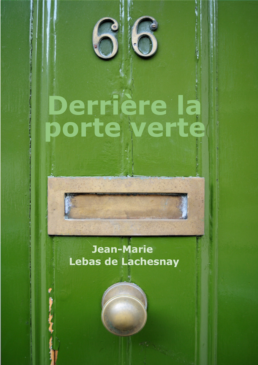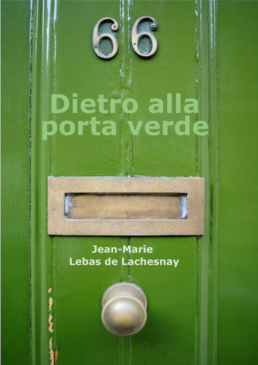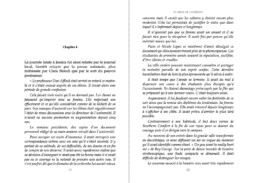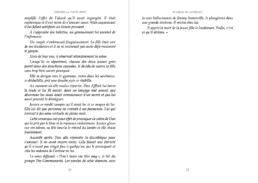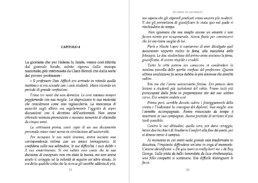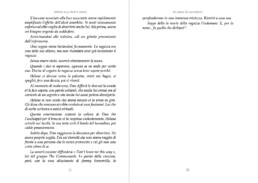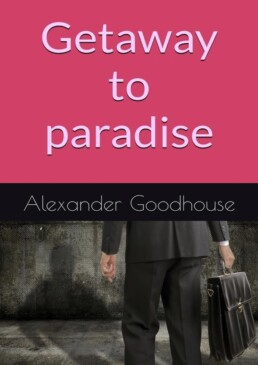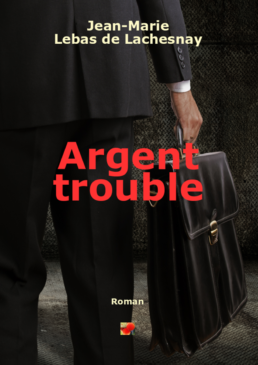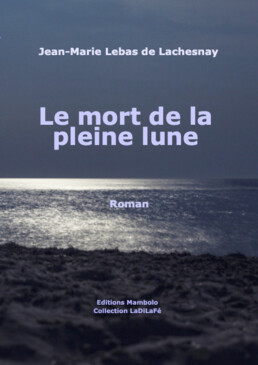Alexander Goodhouse, pseudonym of Jean-Marie Lebas de Lachesnay, lived on Reunion Island, his native country, until he was a teenager…
After staying and studying a while in Paris, he spent two years in Martinique before returning to Paris, where he began a career as an IT consultant before moving to Normandy and then Canada, where he set up his own company. On his return from North America, he joined a major IT and organization process consultancy in Paris before setting up his own business. He now lives partly in Île aux Nattes, Madagascar and partly in Normandy where he devotes most of his time to writing as a freelance novelist.
His travels and discoveries have taken him to no fewer than 33 countries. His writings are imbued with the images, perceptions and enrichments that his many peregrinations have brought him.
He is a father of two daughters.
INTERVIEW BY PHILIPPE BONALDI ON APRIL 17, 2021
- Bonaldi: How do you feel about the release of your latest novel?
- Lebas de Lachesnay: I feel a real sense of relief and pride. Relief that I’ve finally been able to write the final END word, because it’s not at all easy to decide when the story you want to tell is finished. Pride in having stepped out of my comfort zone and given life to characters in contexts and places that are completely unfamiliar to me. How Argent Trouble will be received by readers will tell me whether I’ve succeeded or not.
PB : Argent Trouble is your fourth book. Do you feel that there has been an evolution in the way you write?
JML : No doubt. Argent Trouble is a thriller whose central themes are power, dirty money, tax havens, blackmail, cybercrime and disclosure. One concern I had to overcome was the limits I had to set myself in describing certain situations in which my characters find themselves. This concerns sex as well as the violence that is inherent in the universe in which these characters evolve. I tried not to think about my family and close friends, who are my first readers. I approached the writing of this novel with the intention of allowing myself greater freedom. To get rid of this prudishness that I had been unconsciously imposing on myself until then. Otherwise, I think I’m much more demanding than before.
PB : How did you get the urge to write?
JML : I worked in a business where the written word played an important role. My clients were always asking me to write up what they had to say. They found that I often had the right formula and the appropriate style. But the real trigger was the writing competition I took part in in Italy, which my Italian partner at the time, an author herself, had translated for the occasion. The feedback was very encouraging. It made me want to pursue.
I get a real kick out of creating a story, setting up characters, inventing characters and lives for them that are sometimes improbable. I also get a kick out of adding a touch of humour to rather dramatic situations. I also like to make nods to cinema and music. In Argent Trouble, for example, the title itself is reminiscent of Jean-Pierre Mocky’s Agent Trouble. Chapter titles such as Un très sombre dimanche is a reference to Billie Holiday’s song Gloomy Sunday, Ils ne vieilliront pas ensemble to Maurice Pialat’s film director and L’ange de la mort (Pusher 3 : I’m the angel of death) from director Nicolas Winding Refn. I must have four synopses in the pipeline, but first I’m going to ‘mourn’ the loss of the Argent Trouble characters, with whom I’ve been ‘cohabiting’ for over two years, before tackling the next one.
PB : Do you like all the books you’ve written?
JML : Yes, all of them. If I hadn’t, I would never have ‘exhibited’ them.
A short story in the context of a writing competition, an autobiographical story, a detective story set on Réunion Island, my native land, and finally, Argent Trouble, a darker thriller. I don’t deny myself the pleasure of these achievements.
PB : What are your influences ?
JML : I don’t have an answer to that question. I’m not attached to any one author or style. My latest reads are : Racée by Rachel Khan, Origine Paradis by Thierry Brun, Corruption by the American Don Winslow, Taquawan by Eric Plamondon, Memo from Turner (La mort selon Turner) by British Tim Willocks and Un monstre est là, derrière la porte by Gaëlle Bélem, a talented fellow Reunionese. And coming soon is Sur l’autre rive by Emmanuel Grand.
PB : If you have one, what is your writing ritual?
JML: None. On the other hand, certain conditions are indispensable to me. I spend the morning taking care of the housekeeping so that I’m free of all constraints. Then I isolate myself. And when I start writing, nothing else exists until ‘noon’. Sometimes I forget to eat. I don’t lead a very healthy life when I’m writing intensely.
PB : Are you sensitive to criticism?
JML : No. I write the way I know how and the way I want to. If there was some kind of consensus that my work was of poor quality, I wouldn’t hesitate to question it. But fortunately, this is not the case.
On the other hand, I abhor the meanness and mediocrity of certain professional critics.
PB : Do you think that writers have a role to play in our societies ?
JML : I write fiction for no other purpose than to entertain. I think the vast majority of published novels fall into this category.
Then there are the authors whose works, even if they are novels, bear witness to an era or to historical events. These are the kind of authors who keep alive the memory that is essential, or who, in retrospect, help to bring about justice. Then there are those who publish artistic, political, societal or philosophical manifestos. These generate debates and controversies that are likely to influence the evolution of our societies. Rachel Khan’s Racée falls into this category.
